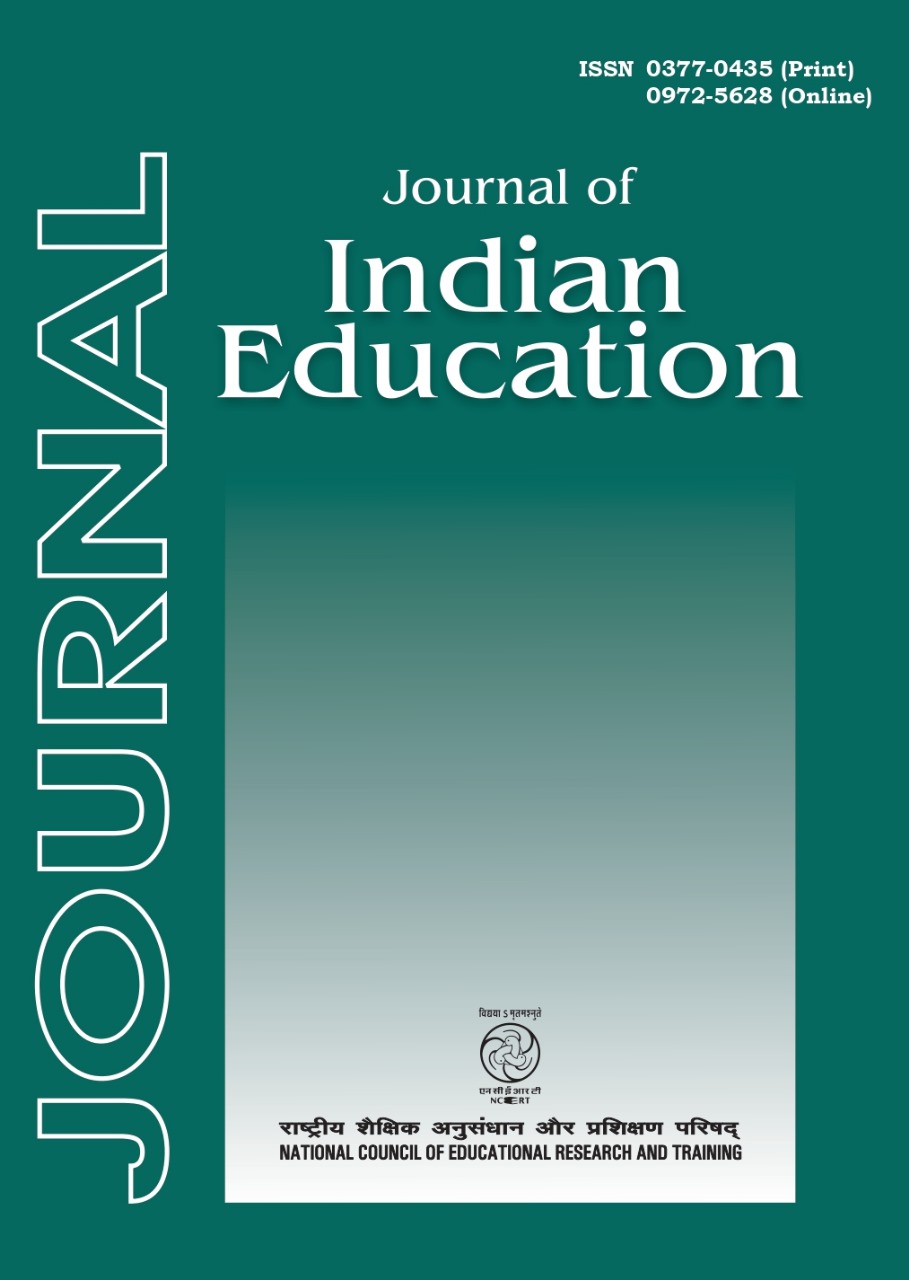Published 2024-11-27
Keywords
- Mathematics Education,
- Elementary Education,
- Teacher Education
How to Cite
Abstract
‘Good’ performance in mathematics at elementary level has always been a concern for learners, as it indicates the individual’s ability of alacrity, accuracy and brevity in thinking and estimation. It, moreover, projects an individual’s capacity of reasoning, critical and analytical thinking. Society also places high importance in performing successfully in this subject as it is considered to be the catalyst for children to gain ‘good’ employment in their adult lives. But for majority of children, learning of mathematics tantamount to ‘swallowing’ of mathematics and ‘memorization of formulas’. Therefore, learning of this subject has been observed to draw considerable amount of fear and anxiety accompanied with a feeling of incompetence, which over and over again estrange children from school and play an important role in their non-participation and disinterest in school activities, irregular attendance and/or drop-out. Besides, RTE-2009 makes it a necessity to provide every child with ‘good quality’ elementary education and hence it becomes an urgent need to ensure that children learn mathematics in a constructive and conducive environment, wherein learning of mathematics is more meaningful and learner centric (NCF-2005). In this backdrop, attempt was made to explore a few psychological dimensions involved in the learning of mathematics during elementary stage, one of which was delving into the concern of appropriateness of the content in terms of their comprehensibility vis-à-vis learners’ cognitive development and age/grades. The exploration involved deliberations with subject experts, mathematics educators and psychologists, focus group discussion with practising teachers and learners to congregate their perspectives, analysing of present mathematics textbooks (Class I to VIII) and reviewing of literature. Findings are discussed with implications for subject teachers, teacher educators and mathematics curriculum framers and textbook writers, in the Indian context.

